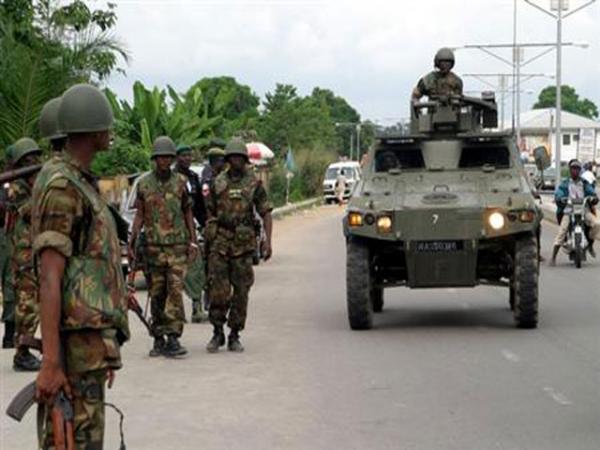Local news outlets had reported that the soldiers beat the student to death for allegedly being involved in cultism.

One Terhile Timothy Achinya, a Mechanical Engineering student at the Isa Mustapha Agwai Polytechnic, Lafia, Nasarawa State, North-Central Nigeria, was reportedly beaten to death by some yet-to-be-identified operatives of the Nigerian Army, with the victim’s elder brother accusing the army of failing to release his corpse after the incident.
The victim’s brother Joseph Achinya, alleged that the Nigerian Army took the student’s corpse with them after the incident and up till the time of this report, his body has not been released.
“We have gone to the school and even my father came from the village over the issue. We have not seen his corpse because we learnt that the army has taken it away and all efforts to get to the army proved abortive,” Joseph Achinya told an investigative news outlet Sahara Reporters.
He also accused the Nigerian Army of acting on wrong information.
“We learnt that a man in the school asked my brother for money, which he said he did not have. The man went to inform the army officials stationed outside the school that he knew my brother was a “Yahoo boy.” Immediately they got this information, they got my brother and one other person who I learnt is still at the hospital and not dead yet. They beat them up and my brother lost his life,” Joseph was quoted as saying.
He denied that his brother was a “yahoo boy or cultist.”
“My father is in the village. He is the one that usually sends us money at school and also other small works that we do. They killed my brother for no reason” he added.
Timothy Achinya’s death reportedly sparked outrage around the polytechnic community, with the Acting Rector of the institution, Dr Nurudeen Mu’azu Maifata suing for peace.
Local news outlets had reported that the soldiers beat the student to death for allegedly being involved in cultism.
The Students Union Government President of the polytechnic, Jacob John Mutuwa, who confirmed the ugly incident to reporters said: “It all started when a student named Samuel Ejembi informed some military men in Lafia of some students who are alleged to be involved in cult activities.
“The soldiers picked up some of the accused students at Eji World, an entertainment centre opposite the Poly campus.”
The Nigerian Army spokesman Major General Onyema Nwachukwu, did not respond to a request for comment.
Stories of police and military brutality are rampant in Nigeria, Africa’s largest democracy. Two-thirds of its estimated 200 million people are below the age of 30 and many, they have either had a personal experience with the police or know someone who has.
As decades of torture, maiming and killing by the country’s security forces stacked up, young people across the country took to the streets for days, beginning on October 8, 2020.
The target of their anger was the Special Anti-Robbery Squad (SARS), a rogue police unit accused of extrajudicial killings, extortion and kidnapping among other nefarious crimes.
Called #EndSARS, the protests ballooned into a massive call for the abolition of the squad. It flickered out on October 20 that year after soldiers opened fire on unarmed protesters at a popular landmark – the Lekki tollgates – in the commercial capital Lagos, killing dozens.
The Nigerian government abused the rights of #EndSARS protesters at the Lekki tollgate in October 2020, according to a ruling by the Economic Community of West African States (ECOWAS) Community Court of Justice.
In a landmark verdict delivered on July 10, 2024, by Justice Koroma Mohamed Sengu, the Judge Rapporteur, the court flayed the government’s particularly “disproportionate use of force” in response to the #EndSARS protest at the tollgate in Lagos on October 20, 2020.
The court also found that live rounds were shot into the crowd of unarmed protesters.
It asked the Nigerian government to pay a total of N2 million in compensation to each victim named in the suit.
The case which was brought before ECOWAS Court by a coalition of human rights activists and organisations, alleged severe violations of fundamental human rights by Nigerian security forces.
Amnesty International also submitted an Amicus Brief, which was declared admissible by the court. After thoroughly examining evidence and testimonies, the court concluded that the Nigerian government’s actions breached several international human rights standards, including Articles 1, 5, 6, 9, 10, and 11 of the African Charter on Human and Peoples’ Rights.
Among many other key findings, the court found credible evidence of disproportionate use of force and violations of the right to liberty and security, assembly, free speech, and dignity. It stated that the use of force was not necessary and contravened the Respondent State’s obligations under the African Charter.
KOIKI Media bringing the world 🌎 closer to your door step
